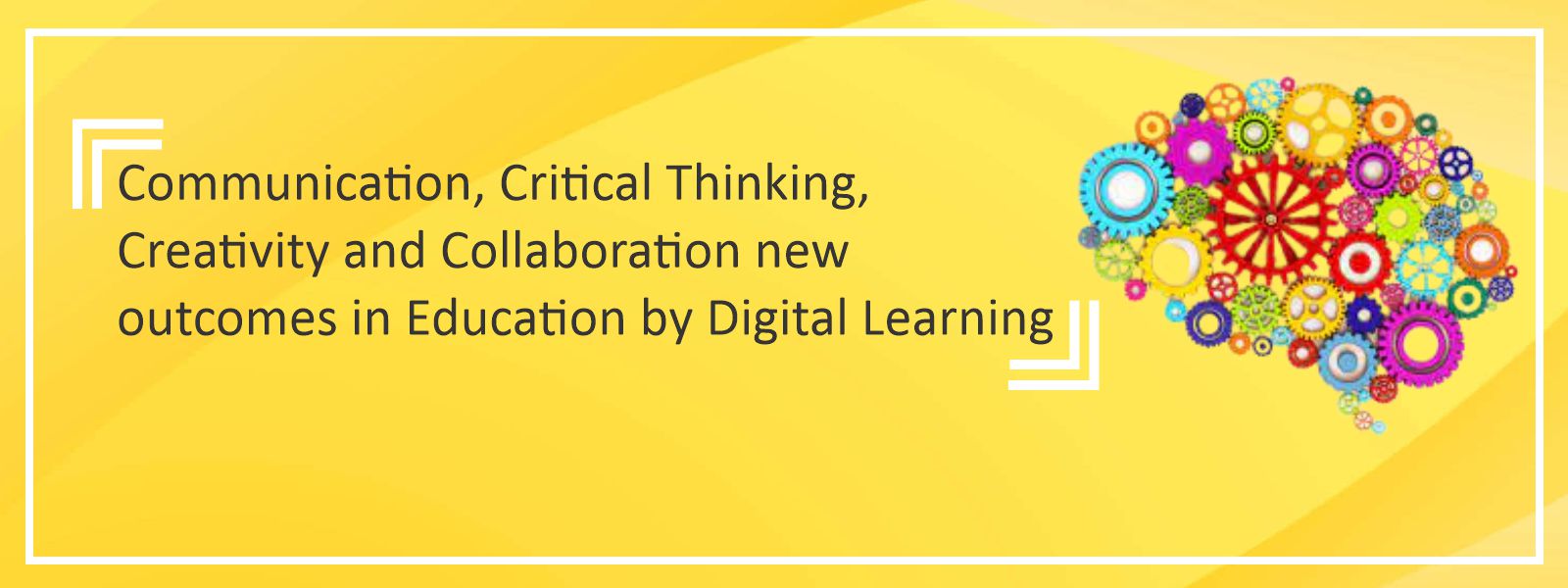
Communication, Critical Thinking, Creativity and Collaboration new outcomes in Education by Digital Learning
Contributor: Prof. (Dr. ) Pankaj Sharma Dean – Faculty of Pharmacy, Apex University, Jaipur, having experience of 24 years in academics and Pharmaceutical Research. He is having more than 50 research papers in National and International Journals of repute. He has also published some text books. He has been guided 18 Ph.D. Scholars and presently guiding 8 research scholars.
Lauded as the 21st century’s “critical skills”, communication, critical thinking, creativity and collaboration have become buzzwords among educators.
The 4Cs have also been recognized as essential skills of the future workforce— not everyone is destined to be an academic giant after all — and the skills required by the average individual in the course of providing for themselves, their families, and society as a whole are also being increasingly identified with the 4Cs.
Here is how online learning can facilitate the 4Cs of education.
Communication
Communication is a very important part of learning it not only enables the student to share his or her thoughts but also fuels the process of innovation. An online learning environment requires students to communicate effectively and clearly. They are more responsible for clarifying the expectations a course has of them. The interactivity of online systems means that communication can be more fluid, flexible and swift.
Communicating clearly online is a necessary critical skill especially with regard to technology, as we move into an AI driven environment. Clear data and clear instruction via technological platforms is increasingly essential.
Critical Thinking
Exploring ways to stimulate critical thinking, specifically in an online environment, is valuable. Teachers can actively require students to adopt a viewpoint different from their original thesis in order to teach them the function of bias in how they think about the world. Discussion, and the requirement to motivate one’s conclusions within a debate, is another important factor essential to promoting critical thinking.
Online forums and discussions need to be carefully moderated by educators with an eye to keeping online discussions flowing, yet still demanding rigorous motivation and explanation from participants.
Creativity
Creativity, from a pure learning perspective, is essentially the ability to explore and investigate new knowledge, combined with the ability to then apply this in new or different contexts.
The internet is a wide, rich and rambling space, enabling extraordinary exploration of ideas. It is also a hotbed of mimicry, imitation and originality of thought are hard to come by. If usen wisely it can help the students to achieve the true intellectual creativity described requires a firm hand by teachers when designing lesson plans and expectations. Focus not only what your students can find out, but also on how they can apply that knowledge to solve old problems with new solutions.
Collaboration
Interaction and the capacity to immediately challenge assumptions is said to be minimized in online learning. It is naturally true that the cut and thrust of classroom discussions is missing from many online learning environments. They instead focus on fostering focus, responsible time management and self-motivation.
However, online learning environments, with their ability to teach across distances, are rich with cultural diversity. It goes without saying that as technology shortens the distances between us, our ability to collaborate with, understand, and accept other cultures in an academic environment is increased.



